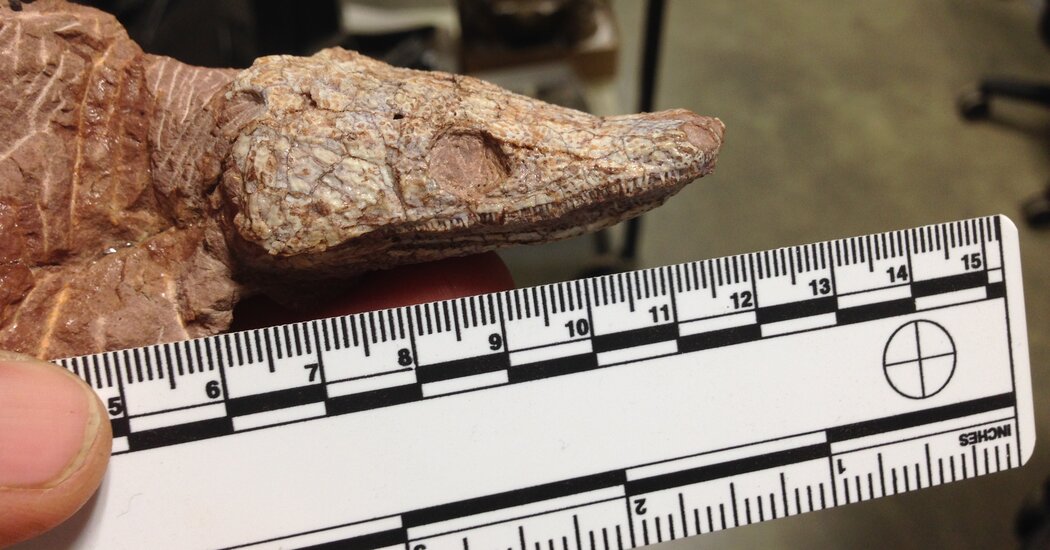After scientists found an extinct burrowing amphibian on Eastern Shoshone land, members of the tribe gave it a name in their language.
At age 6, Reba Teran lost the ability to speak her language. Like many Indigenous students in the 20th century, she attended schools where any language other than English was forbidden.
For the past 22 years, Ms. Teran, an Eastern Shoshone Elder, has made it her “life’s work” to build a dictionary of her people’s language, one that includes audio recordings of people speaking the words. After six years of hearing the language, she started dreaming in Eastern Shoshone.
“And then one morning,” she explained, “I woke up and all of a sudden, I could talk.” She had regained the ability to both think and converse in the language.
Ms. Teran’s work on the dictionary continues, and now Eastern Shoshone words she helped document are being used for the name of a new prehistoric amphibian species. That animal once burrowed for safety in the land that is home to the Eastern Shoshone.
Scientists announced the ancient amphibian, which Ms. Teran named Ninumbeehan dookoodukah, in a paper published in October in the Proceedings of the Royal Society B. It belonged to a primitive group called temnospondyls. And it was small, its skull fitting in the palm of a hand, with scores of tiny teeth lining its mouth. During the period in which it lived approximately 247 to 231 million years ago, it was exposed to devastating equatorial heat and megamonsoons.
The animals’ strategy was to dig deep into the ground and wait until things got better. As aquatic creatures, preventing desiccation would have been key to their survival. This led the team to hypothesize that Ninumbeehan remained within their burrows until it rained again, avoiding the lethal Triassic heat.
